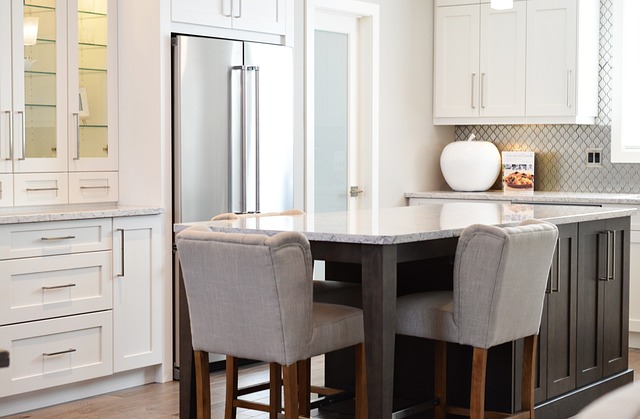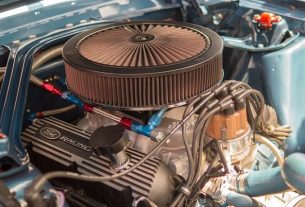Homeowners should understand the essentials of home repair and maintenance, particularly when it comes to appliance installation and upkeep, to ensure safety and efficiency. Proper installation is non-negotiable for appliances to operate within their designed specifications, with examples including leveling refrigerators and securing dishwashers in compliance with manufacturer instructions and local building codes. Knowing whether to handle repairs DIY or call a professional is crucial; simple tasks like sealing a fridge door or tightening loose screws can often be done at home, while complex issues involving gas or high-voltage electrical systems should be left to qualified professionals due to legal requirements. Regular maintenance and prompt repairs are key to maintaining the functionality and safety of household appliances, preserving the overall integrity of your home. Homeowners must stay vigilant and regularly inspect and clean their appliances, such as checking power supply connections for electrical appliances or inspecting washer hoses for signs of wear. Referring to user manuals for troubleshooting and consulting with professionals for issues beyond personal expertise are advisable practices to prevent more serious complications later on. Investing in professional home repair and maintenance services not only ensures compliance with safety standards but also safeguards the longevity and performance of your appliances, making it a wise choice for both appliance health and household safety.
Navigating appliance installation and repair is a fundamental aspect of home maintenance, ensuring your household’s comfort and functionality. This article demystifies the process with insights on basic installation practices, troubleshooting frequent malfunctions, and the decision-making criteria for professional versus DIY interventions in home repair and maintenance. Whether you’re a seasoned handyman or new to home upkeep, this guide equips you with the knowledge to tackle appliance issues confidently, maintaining your home’s efficiency and safety.
- Understanding the Basics of Appliance Installation for Home Repair and Maintenance
- Troubleshooting Common Issues in Appliance Repair for Effective Home Maintenance
- Professional vs. DIY: When to Call an Expert for Appliance Installation and Repair Services
Understanding the Basics of Appliance Installation for Home Repair and Maintenance

When addressing home repair and maintenance, particularly in the context of appliance installation and upkeep, it’s crucial to have a foundational understanding of the process. Proper installation is not just about connecting an appliance to your electrical system or plumbing; it involves ensuring that the device functions safely, efficiently, and within its specified parameters. For instance, refrigerators require leveling to prevent uneven wear on the compressor, while dishwashers must be connected to both water and electric supplies in a manner that adheres to manufacturer guidelines and local building codes. Homeowners embarking on appliance installation should familiarize themselves with these specifications to avoid potential hazards and to ensure the longevity of their appliances.
Understanding the basics also extends to recognizing when a repair is within your capabilities or when it’s time to call in a professional. For less complex issues, such as replacing a refrigerator door seal or tightening loose screws on a washing machine, basic DIY skills can be sufficient. However, for tasks involving gas lines, high-voltage electrical work, or intricate components only accessible by disassembling the appliance, professional assistance is not just recommended—it’s often required by law. Regardless of the complexity, consistent maintenance and timely repairs are key to preserving the functionality and safety of household appliances, thereby upholding the integrity of your home repair and maintenance regimen.
Troubleshooting Common Issues in Appliance Repair for Effective Home Maintenance

When appliances malfunction, timely troubleshooting is key to maintaining a smoothly functioning household. Common issues such as electrical faults, water leaks, or mechanical failures can often be addressed with basic knowledge of home repair and maintenance. For instance, if an appliance isn’t powering on, it’s crucial to check the electrical connections and outlets for proper function. Ensure that the power supply is uninterrupted and that any cords are securely plugged in without signs of damage. Similarly, for appliances with water connections, inspect hoses and fittings for wear or corrosion that may cause leaks or reduce efficiency. Regular cleaning and maintenance can prevent many problems before they arise. For example, refrigerator coils should be vacuumed to remove dust, which improves cooling efficiency. Washer hoses should also be periodically checked for bulges or cracks that could lead to bursts and water damage. By staying vigilant and applying simple repair techniques, homeowners can extend the lifespan of their appliances and ensure consistent performance, which is at the heart of effective home maintenance. It’s always recommended to refer to the user manual for specific troubleshooting steps or consult with a professional if the issue persists beyond your capability to resolve it safely. Regular maintenance checks and prompt repairs can mitigate larger issues down the line, thereby safeguarding your home and investment in appliances.
Professional vs. DIY: When to Call an Expert for Appliance Installation and Repair Services

When confronted with appliance issues at home, deciding between handling the problem yourself or calling in a professional can be a quandary. For straightforward repairs that involve minor adjustments or component replacements, a DIY approach might suffice, particularly if you have prior experience with similar tasks. However, for complex installations or intricate repairs that require specialized knowledge, expertise is paramount. Professional appliance technicians are well-versed in the nuances of various makes and models, ensuring that your appliances are not only installed correctly but also optimized for performance and longevity. Engaging a professional from appliance installation and repair services becomes even more critical when dealing with gas or electric appliances where safety is a primary concern. A certified expert will have the necessary tools and skills to perform these tasks safely, adhering to local regulations and codes. Moreover, investing in professional home repair and maintenance services can prevent costly future repairs by ensuring that installations are done right the first time. When in doubt, consulting with a professional can offer peace of mind, as they can diagnose issues accurately and provide lasting solutions, ultimately safeguarding your appliances and your safety.
In conclusion, mastering the basics of appliance installation and troubleshooting common issues in repair is crucial for homeowners aiming to maintain a well-functioning household. The decision to undertake these tasks yourself or to call in a professional hinges on several factors, including complexity, safety, and skill level. Whether you choose to handle appliance repairs as part of your DIY projects or opt for expert assistance, the goal remains clear: to ensure your home’s systems operate efficiently and safely. With the knowledge from this guide, you are now better equipped to navigate the world of home repair and maintenance with confidence, securing the longevity and functionality of your appliances.



